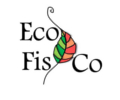Long-term effects of aided phytostabilisation on microbial communities of metal-contaminated mine soil
- Egileak:
- Garaiyurrebaso O, Garbisu C, Blanco F, Lanzén A, Martín I, Epelde L, Becerril JM, Jechalke S, Smalla K, Grohmann E, Alkorta I
- Urtea:
- 2017
- Aldizkaria:
- FEMS Microbiol Ecol
- Liburukia:
- 93
- Deskribapena:
-
Aided phytostabilisation uses metal-tolerant plants, together with organic or inorganic amendments, to reduce metal bioavailability in soil while improving soil quality. The long-term effects of the following organic amendments were examined as part of an aided phytostabilisation field study in an abandoned Pb/Zn mining area: cow slurry, sheep manure and paper mill sludge mixed with poultry manure. In the mining area, two heavily contaminated vegetated sites, showing different levels of soil metal contamination (LESS and MORE contaminated site), were selected for this study. Five years after amendment application, metal bioavailability (CaCl2 extractability) along with a variety of indicators of soil microbial activity, biomass and diversity were analysed. Paper mill sludge mixed with poultry manure treatment resulted in the highest reduction of Cd, Pb and Zn bioavailability, as well as in stimulation of soil microbial activity and diversity, especially at the LESS contaminated site. In contrast, cow slurry was the least successful treatment. Our results emphasise the importance of the (i) long-term monitoring of soil quality at sites subjected to aided phytostabilisation and (ii) selection of the most efficient amendments and plants in terms of both reduction of metal bioavailability and improvement of soil quality.

